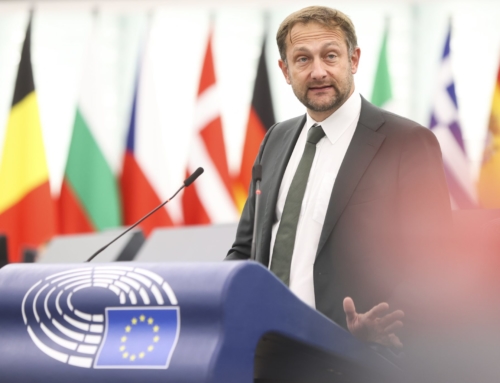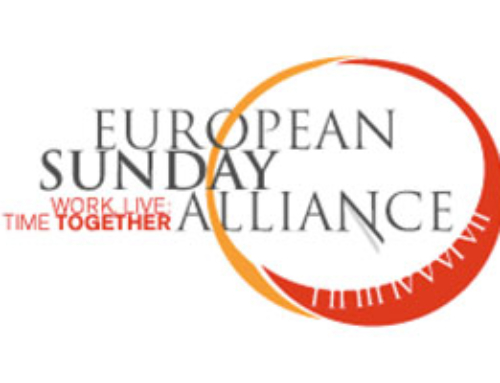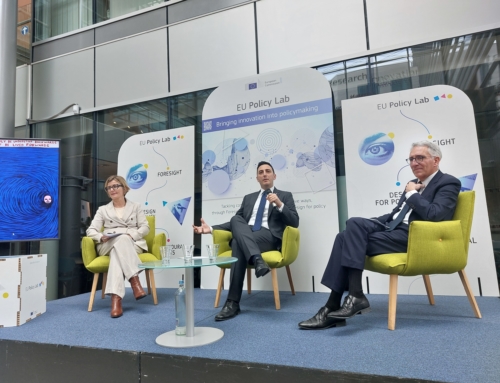27th of June 2023
A comprehensive approach to mental health: communication from the Commission
On the 7th of June 2023, the Directorate-General for Health and Food Safety of the European Commission published a communication on a comprehensive approach to mental health.
The document of the European Commission stresses the gravity of the mental health crisis in Europe, especially in the light of changes that our society is undergoing nowadays. The impact of Covid-pandemic, digital world development, demographic change, and ageing population (with many older people experiencing loneliness) calls for a comprehensive action on the European level. This communication encourages Member states, as well as other institutions to go beyond the health policies in order to come up with solutions that will “bring relief” and prevent people from suffering.
“During the pandemic, people in the EU affected by loneliness doubled compared to pre-pandemic years, reaching 26% across some regions.”
Loneliness during and after the pandemic is a problem to which family is an excellent remedy, as stressed during FAFCE International Congress on Family Networks: “Antidote to loneliness” in Murcia, Spain (2nd of May 2023). It directly echoed with the Commission’s call to Member States to find ways of facilitating the participation of the elderly in the social life in order to improve their mental health.
The communication enumerates and describes flagship initiatives focusing on mental health: prevention, strategies regarding children and young people, women, the elderly, victims of crimes, disabled persons, those affected by cancer, beside initiatives to tackle stigma and discrimination together with awareness raising activities. The document mentioned mostly actions realised at the EU level, however it also presented some initiatives on a global level and tackled upon the issue of the mental health support for Ukraine displaced and affected people, as well as refugees, migrants, Roma and persons from the rural area.
It identifies the areas of development and proposes measures that need to be introduced in order to ensure that every EU citizen has access “to adequate and effective prevention, to high quality and affordable mental healthcare and treatment, and is able to reintegrate society after recovery”.
FAFCE welcomed the inclusion of the family as key in tackling the issue of mental health: “A comprehensive approach must recognise the influence of biological and psychological factors, as well as the importance of the family, community, economy, society, the environment and security.”. The communication also stresses the role of families while addressing the needs of children: “The Commission invites Member States to identify children as a priority target group in their national mental health strategies and build up networks with families, schools, youth, and other stakeholders and institutions involved in mental health of children.”, especially while noticing that “parents are no longer able to cope” – that is why it is important to support them and families in general in order to ensure the best care for children, as “childhood is a crucial stage in life in determining future mental health”.
While focusing on the mental health of children and young people, the communication states that “the Commission will support the implementation of the EU strategy for a more effective fight against child sexual exploitation and abuse.”
In addition, the communication mentions the Digital Service Act and BIK (The Better internet for children strategy) regarding the protection of children from “online crimes such as online child sexual abuse” and mitigation of the risks to their physical and mental development while using online platforms. FAFCE welcomes this element, especially in the light of the FAFCE Contribution to European Commission Consultation on Stopping Online Child Sexual Abuse: “Overall, the online protection of children must be a top priority of the European Union, in order to create a welcoming environment where children can learn, play, and have access to useful services while fully protected from such dreadful risks.”
The communication also stresses the importance of early interventions and maternal and infant health, mental health in the workplace, as well as the “postnatal depression and other mental health issues that can arise during pregnancy” as issues requiring attention, in order to “protect the mental health of both children and women.”. This statement supports FAFCE’s remarks in the White paper on Protecting Women from Maternal Mobbing that calls to ensure not only that mothers don’t experience a health-harming abusive conducts at work but also that they can participate in the family life and respond to their children’s needs to create a mental health friendly environment right at the basic unit of the society; and urges to “promote financial, mental and cultural freedom of choice for women regarding the configuration of their family work-life balance.”
In addition to addressing the “prevention and combating of harmful practices against women and girls” it mentioned that the “economic pressures and dependencies experienced by women must also be tackled.”
“Women are almost twice as likely as men to experience depression.”
The communication highlights the importance of work-life balance and the right to disconnect (“particular attention to the promotion of work-life balance is needed.”) as an example of the comprehensive approach to tackling the issue of mental health in other sectors. In addition, it brings attention to the problem of the lack of equal opportunities and treatment of women and men at the labour market and points out the matter of the work-life balance of parents and carers.
It is indeed disappointing that while mentioning: “the physical and sexual violence and threats experienced by victims of trafficking in human beings” the Commission did not include surrogacy as one of the issues, neither the negative impact of medical risks related to surrogacy, such as the common lack of post-natal care and an increased risk of postpartum depression, including death, nor the mere fact of selling their body and their reproductive functions in order to support themselves and their family on mental health.
FAFCE welcomes the solutions provided by the European Commission when it comes to mental health in the European Union and calls for more attention to be given to family support in promoting mental health, and to encourage Member states to prioritize family-friendly policies that enable families to provide individuals with a sense of security, love, and belonging, which are all essential factors in maintaining good mental health.
You may find the communication here.







